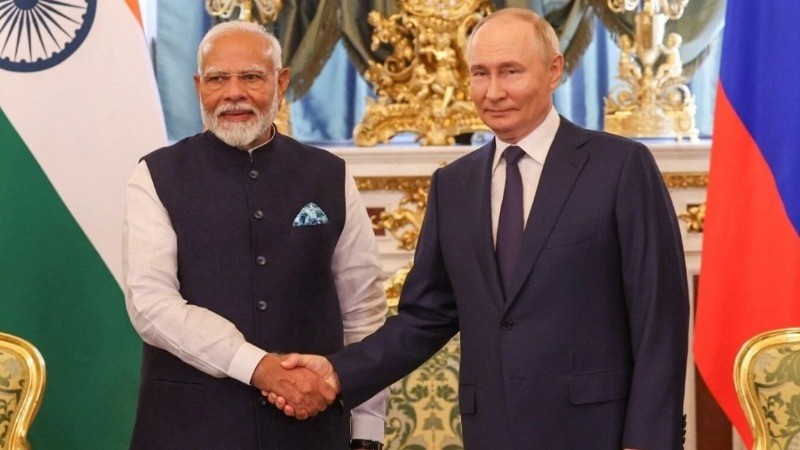
Prime Minister Narendra Modi's participation in the 16th BRICS Summit in Kazan holds significant importance, marking his tenth overseas trip during his third term and his second visit to Russia. These diplomatic visits reflect India's growing influence in global politics, acting as a crucial link between the East and the West.
Most of Modi’s recent trips have centered on strengthening India’s relations with Eastern, Central European nations, and East Asia. However, he also attended the G7 Summit in Italy in June and the QUAD Summit in the USA in September, further emphasizing India's balanced approach to diplomacy. These visits showcase India's commitment to fostering collaboration and maintaining strong ties with both global superpowers and regional players.
BRICS: A Force in Global Diplomacy
The origins of BRICS trace back to 2001 when a report identified four key emerging market countries—Brazil, Russia, India, and China—as future drivers of global economic growth. The first meeting of BRIC leaders took place in 2006, and in 2010, South Africa joined, expanding the group to BRICS. Since then, BRICS has become a major force in international relations, commanding attention due to its vast population and economic power.
As of 2023, more than 40 nations have shown interest in joining the group. With Iran, Egypt, Ethiopia, and the UAE set to become members in 2024, BRICS will further expand its global reach, becoming BRICS+. This year’s summit marks the first expansion of BRICS in 14 years, making it a pivotal moment for the group.
Economic Influence and Global Impact
BRICS accounts for over 40% of the world’s population and nearly a quarter of the global economy. With the potential inclusion of Saudi Arabia, the group could control up to 44% of the world’s crude oil production. The collective GDP of BRICS members has already surpassed that of the G7 countries, reflecting a significant shift in the global economic landscape.
BRICS has also established institutions like the New Development Bank (NDB) and the Contingent Reserve Arrangement (CRA), which challenge traditional Western financial institutions such as the World Bank and the IMF. The NDB has approved over $30 billion for various projects, focusing on climate-resilient and socially inclusive initiatives.
One of the key goals of BRICS has been to reduce reliance on the US dollar in global trade, particularly in light of sanctions imposed on countries like Russia and Iran. This has made the bloc's economic outlook a central focus of international attention.
India’s Role in BRICS
As a founding member of BRICS, India has played a crucial role in shaping the group’s direction. Amid current geopolitical tensions, including conflicts involving Russia and Iran, and China’s economic challenges, India has emerged as a key voice within the bloc. Prime Minister Modi has actively participated in discussions on global platforms such as the G7, QUAD, ASEAN, and SCO, promoting multilateralism and collaborative solutions to global challenges.
India’s position as a bridge between the East and the West is a vital aspect of its foreign policy. PM Modi’s leadership emphasizes the importance of multilateral cooperation in addressing issues like trade, security, and sustainable development. The 2024 BRICS summit underscores this approach, with India poised to take a leading role in shaping the future of international relations.
BRICS and the Global South
BRICS has been instrumental in advocating for the Global South, providing a platform for emerging economies to collaborate on common challenges. Prime Minister Modi has consistently emphasized the need for an inclusive world order that promotes development for all, particularly for the Global South. As the group continues to grow and evolve, it offers a powerful platform for countries to assert their interests on the global stage and challenge traditional power structures.
Looking Ahead: India’s Leadership
With the addition of new members and growing influence, BRICS is set to reshape the international order in the coming years. As India continues to play a leadership role within the group, the 2024 BRICS summit highlights its potential to champion multilateralism and foster collaboration between diverse nations. PM Modi’s efforts to bridge global divides and promote collective solutions make India a key player in the future of international diplomacy.